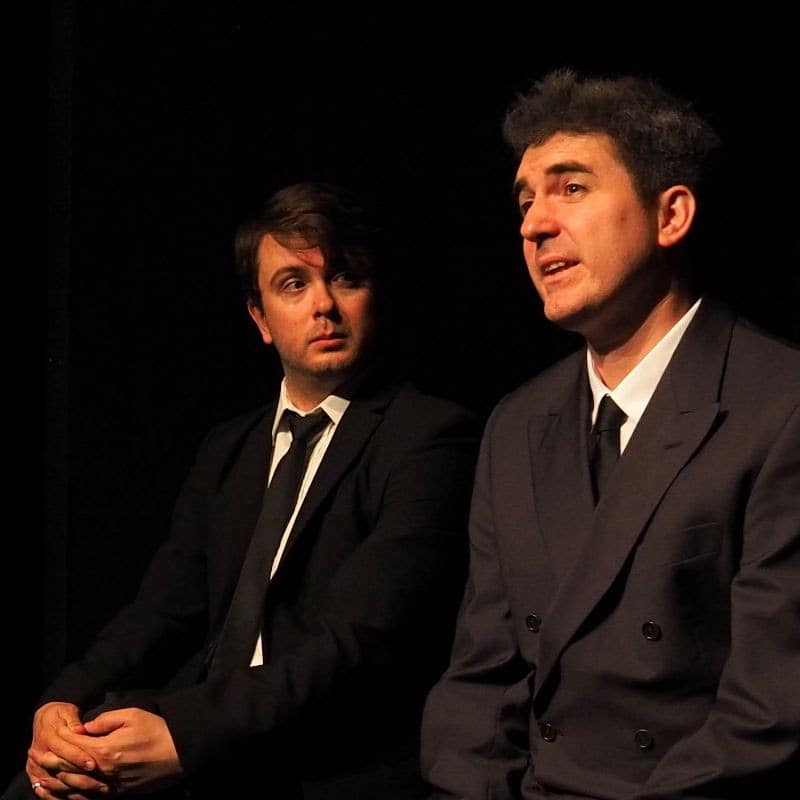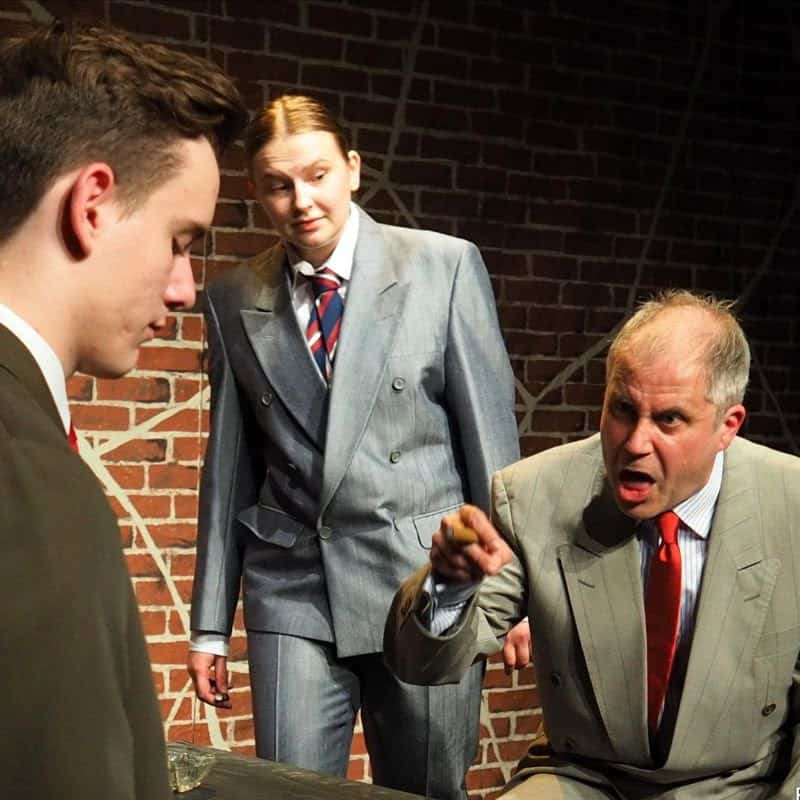FOR TWO weeks at the end of June, Progress Theatre put the fruits of three years’ worth of work to the stage with one of its most ambitious productions yet, Angels in America.
The play looks at the lives of two couples as they struggle to navigate their relationships in mid-80s New York, examining the effects of the AIDS crisis, homosexuality, race, suppression of self, and mental health.
Matthew Beswick, the director, says that even in the years since he began working on the production, its enduring relevance has continued to shift.
“It’s strange, because I proposed the play in 2019, but the pandemic has given it an extra edge.
“The hopeful message at the end of the play, the decision that all someone wants is more life no matter how sick they are, resonates with me far more now than before.”He says also that there are some parallels to be drawn between the handling of the AIDS crisis and the handling of the coronavirus pandemic.
“For many years governments and public bodies did nothing about AIDS and many people needlessly died– even when action was taken, funding was often insufficient.
“So many gay men were completely abandoned, and that abandonment is at the core of the play.”
In the play, Prior and Louis, a gay couple, are cast apart when Louis struggles to come to terms with Prior’s AIDS diagnosis. Louis leaves, and is thrown into a triste with closeted, married legal clerk Joe.

“In some ways, I think the world has changed massively for the good in regards to LGBTQIA+ rights.
“But I also feel there’s always going to be a not insignificant number of people waiting for the opportunity to exclude queer people or throw out false accusations rooted in bigotry.
“The one that springs to mind is how Drag Queen Story Hour events are being attacked across the country recently– despite the fact they grew up with panto dames and Lily Savage but they can’t see the truth through their hatred.”
He says that issues facing trans people, such as recent high-profile legislation concerning the banning of conversion therapy, are a “stark reminder of how quickly public discourse can change.
“That’s why we must stand in unison, LGB with the T, as once trans people have been oppressed then other queer minorities will follow.
“There is no satisfying bigotry by sacrificing one vulnerable group, they will just move onto the next most vulnerable.”
On the play’s most prominent subject, Matthew says that the play’s presentation of the characters’ struggles with AIDS is one of the reasons he loves the production.
“I’ve loved it since I first saw it about 20 years ago because the characters who have AIDS are not just tragic victims.
“In fact, in the case of Roy Cohn, he was a terrible person, and that really spoke to me because disease is indiscriminate.”

“Often the person dying of AIDS is a tragedy that motivates another character, but isn’t a whole fully-formed person in their own right.”
He says that this is what he feels makes Angels in America so unique.
“Everyone has very complex motivations and desires driving their actions–they are not defined by AIDS no matter how drastically it changes the characters’ lives.”
Now that the production has finished, he says that the realisation of the production is one of his favourite parts of the process.
He says: “A lot of the set, lighting, and music is theoretical up to that point, but once you’re on stage you really start to believe everything will come together.
“It re-energises the cast as well once they can see everything falling into place. This project was particularly special because we had some big set pieces.
“From the angel sculpture that Lydia Freeman made, to the rising platform and canvas wall that had to drop at the end of play one, it was really spectacular to see it all come together. ”
Though the production of Angels in America has now finished, Progress Theatre is staging its adaptation of Charles Dickens’ Great Expectations at the Abbey Ruins from Wednesday, July 20, to Saturday, July 30.
For more information, or to book tickets, visit: www.progresstheatre.co.uk.























